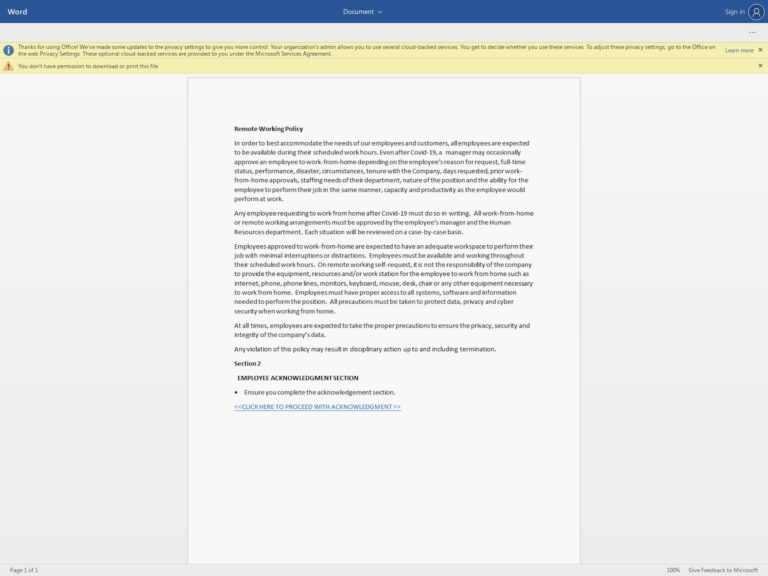Tim Sadler: In this episode, I’m speaking with Stephane Kasriel, the former CEO of Upwork, and a future of work visionary. Now, some companies have been practising remote working for many years. But for others, the Covid-19 pandemic has forced a remote work environment almost overnight.
In my research for this discussion, I was amazed to find that last year 44% of companies didn’t allow remote work at all. And globally, only 52% of people worked from home at least once a week. We’re fast forward now to 2020. And things couldn’t look more different. And as Stephane says, in our upcoming discussion, it’s likely will never go fully back to our old ways of working. Stephane shares his tips on how to build a remote working strategy for the long term, his opinions on what the future holds, and explains why he believes flexible working is a win-win for everyone.
And, by the way, you can find all our podcast episodes here.
TS: Stephane, can you tell us a bit more about how distributed working was built into upwards DNA?
Stephane Kasriel: You know, there’s an expression here. So first of all, thank you for having me, Tim, this is fantastic. But really, you know, one of the expressions that people use in the Bay Area is eating your own dog food. And so Upwork is a website and a mobile app that helps people work from home, and helps companies engage with people that work from home. And so we decided from day one, that we couldn’t convince our customers to do this if we didn’t do it ourselves.
And so Upwork today has about 2000 people. There’s about 300 of them who work in an office, two offices in the Bay Area, one in Chicago, but the vast majority of people are working from home. I think we have people in something like 500 different cities in the world. And some of them have been working with a company for a decade or longer. So this is not just short term gigs for low value work. A lot of these core software development, legal services, financial services for the company, just people that are not physically present in the office.
TS: 500 offices, that is a huge achievement to have that kind of scale of remote workforce. What have you actually learned along the way about making remote work a success with your team?
SK: You know, there’s a lot of different learnings. I would say increasingly, people have documented those learnings. So Upwork has an entire website, and it’s been updated for the pandemic. You know, obviously to say the obvious, there’s a lot more people that are working from home right now than ever in the past, many of whom were not prepared for this, and their companies were not prepared for this. So Upwork has published a pretty meaningful set of recommendations. But it’s not the only company that has done it. GitLab has an amazing set of documents, Zapier, Trello – which is part of Atlassian. And there’s probably half a dozen different companies that have done remote that scale, you know, automatic. The people behind WordPress, are the people behind Basecamp.
So I would say like at the very highest level, I would just say treat people the way you want to be treated, right? Like, put yourself in the shoes of one of your people working from home, particularly in a time like today where this is not normal remote work. This is remote work where people may be sick, people may be scared of being sick, they may have people close to them that are sick, they may have children at home, they may have multiple people on zoom at any point in time and not enough bandwidth to connect.
And so just I would say rule number one is empathy, realize that this is a tough time for everybody. And leading with care and love is probably one of the best things you can do. The second one – which is probably pretty obvious if you manage people in different time zones – realize that they have different working hours from you. Switch from a very synchronous model, where everybody’s on Zoom all day long, or everybody’s meeting at the same time, to something that’s more asynchronous – where you you do more writing, or you do more things on Loom – which is kind of the the offline version of Zoom, if you will.
And you know, and I would say that the third thing is just realize that you need to communicate even more when people are distributed than when they’re local. So, you know, repeat yourself, set up meetings, when meetings need to be set up, document more than you would otherwise and don’t assume that everybody knows what’s in your head. Because that’s really not true even when they work close to you. But it’s even harder for them to get into your head if they’re remote. And there’s a long long list beyond that. But I would say those are like the high level ones.
“Put yourself in the shoes of one of your people working from home, particularly in a time like today where this is not normal remote work.”
Stephane Kasriel
Former CEO at Upwork
TS: Yeah, and I love that point about leading with empathy. I think it’s so important during this time, and obviously these are… You know, we’re seeing the kind of the key takeaways from years and years of trial and error. What have been some of the lessons learned along the way? And, you know, you’ve outlined some really important practices here for companies who are just getting to grips with this with this new normal. But it’d be really interesting to understand, you know, what hasn’t worked out in the way that you thought it might have? And what approach would you encourage companies to take so that they can have a continual cycle of learning with how they’re improving their remote work initiative?
SK: I think like, that’s the key, right is a continuous cycle of learning, like, get feedback on what’s working and not document the best practices, share them to the organization, especially if you’re a bigger company, there might be part of your organization that’s doing it really well, and other parts of their organization not so much. And sharing best practices is absolutely essential. But you know, I would, I would say, there’s probably two things. One is, learn about time zones, you know, if people are in multiple different countries, work life balance matters, and expecting somebody to be always awake from 2am to 5am, because that’s what you need. Unless that’s truly what they were signing up for. Initially, it’s probably not a good idea. So when we assembled teams within Upwork, we were always cognizant of having people and potentially two different time zones that were compatible with each other, but really on three, so for instance, us plus Asia plus Europe, somebody does not sleep.
So that’s, that’s one component of it. The second one, which actually is what companies are being forced to do right now. So that’s helpful, is when you’re switching from a very local model to a very distributed model, the easiest way to do it is not to hire a bunch of people from the outside that are working remotely. But instead to allow your current employees, especially the people that are the most tenured, that really know how to get things done. When they give you feedback, you’re going to listen to the feedback, let them work remotely. And by the way, that doesn’t just mean working from home in San Francisco, that means if they choose to relocate to another part of the country, let them do that, in fact, encourage them to do it. We have a relocation package, we actually call it the relocation package, which is, if you’re based in San Francisco, and you want to move to another part of the country, we will actually pay for your moving expenses. It’s hard enough, if you’re not a remote first company, it’s hard enough for your existing employees to work remotely, it’s even harder for new people to come in and work remotely.
And so the challenge with a lot of companies is they try to go from one extreme, which is, you know, everybody’s in the same office to the other where you hire a bunch of new people who know nothing about the company, and don’t know anybody, and have them be successful. And I think the intermediate plan is to take your existing people and allow them to work from home. Check this is happening right now. Step two is allow your existing people to relocate to another part of the country if they choose to. And, then, step three, start to open up hiring, probably first in places where you have local employees already, because you’re going to have that, you know, face to face connection from time to time, which is really helpful to build a sense of community.
TS: And this leads me on nicely. I think that the relocation pack – I like that terminology. And there are a lot of people who are, I think rethinking where they have to be based in terms of, you know, their location to actually now work for the companies they do. You describe flexible working as a win-win scenario, I guess, for employees, and also for the employer. Could you maybe unpack that a little bit and just share a bit more of your thinking around that with us?
SK: Yeah, and I would say there’s even a third component, which is society as a whole. Right? So why is it a good thing for employers? Well, you know, the main downside, which is the myth is people are going to be working less, it’s bad for your culture, you’re going to have retention issues, all that stuff, none of which is true, right in, in companies that are good at measuring worker productivity, and most of them are not. There is no data that shows that worker productivity goes down when people are working remotely. In fact, there’s tonnes of data that shows the opposite. The idea that it’s bad for retention, like employee loyalty, I can give you the example of Upwork the people that work remotely stay at the company at least twice as long as the people that are based in San Francisco. And it’s pretty obvious why, you know, if you’re based in San Francisco, you’ve got all the other tech companies that are trying to poach you all the time. When you live in the middle of Sacramento or Stockton, Modesto or even outside of California, there’s a lot less competition for talent, right, so it’s good for companies. employee retention, obviously cost, you know, like the cost of living in San Francisco is so high that you can find equally talented talent for significantly less money elsewhere.
Right. So that’s the company point and I would say more than cost savings. For the most part. It’s about attraction of talent and retention of the talent on the employee side, you know, like, I think we’ve done many, many surveys over the years at Upwork. And most people would prefer to have more flexibility in their life, and to be able to potentially relocate to another part of the country. You know, the San Jose Mercury News does a study every year, and they just updated it and went up again. But last year, more than 50% of the tech employees who live in the Bay Area said that they would choose to leave the Bay Area if they could keep the same job and the same thing. And so there’s a meaningful number of people who live in places like New York and London and San Francisco and Shanghai, not because they really enjoy the lifestyle of the cost of living, but because that’s where the jobs are. So that’s, that’s how it helps people.
But secondly, it also helps people that are excluded from the current workforce to participate in the workforce. So one of the studies that Upwork does every year is called Freelancing in America. We asked freelancers, would you ever choose to work for a regular employer? And 50% of freelancers say no. And when you ask them why, usually the answers are care duties. If physical or mental disability makes it hard for them to contribute to a regular office environment, or living in a part of the country where there’s no job. So you’re really allowing lots and lots of people, who otherwise can’t get access to great jobs, to have access to them.
And then the third piece is society as a whole. So one thing that’s, you know, pretty well documented by economists. If you have a highly paid worker, moved to a part of the country that is economically challenged, it creates, on average, an extra four jobs. And it’s pretty obvious why right? You put a highly paid software developer in the middle of the country, and they’re going to start to consume goods and services, which further creates more jobs and restarts the new economy, as opposed to today. I mean, if you look at the situation here in San Francisco, almost all of the people whose jobs truly require them to be in San Francisco, can’t afford to live anywhere nearby. And meanwhile, the people whose jobs can be done from anywhere only live in San Francisco. So it’s kind of the opposite of where it needs to be. And I think this distributed work approach can really be a win-win for society, for the workers and for the employers as well.
“You know, I think it just accelerated the future by a decade. The sobering fact is, I think, the virus has done more in three months than I've been able to do in 10 years.”
Stephane Kasriel
Former CEO at Upwork
TS: Yeah, yeah. There’s some fascinating stats there as well. I’d seen a few, a few of those recently. It does, you know, it seems obvious when you say it, that there are so many other benefits that come from this kind of setup. And I guess from the company’s perspective, it’s, it’s really, really important that you’re empowering your workforce and your employees to be successful in this environment. And there are certain things, when you’re running a company that you still have to get right, whether you’re a remote work environment, or whether you are in physical offices around the world.
And obviously, a topic very close to our heart is security and thinking about how you keep people secure with the data they’re handling, whether they’re working from their home office, or their front room. And it’d be good to hear your perspective, some of the things that you’ve done to empower your workforce overall from a technology perspective. And then, when it comes to actually security specifically, what do you think companies need to have in mind?
SK: Yeah, absolutely. So there’s definitely several, you know, components to allowing a distributed workforce to be successful. There are human resources related matters. There are legal related matters, right? Employment is regulated in just about every country. So you need to understand what you’re getting yourself into. Usually, there’s tax and accounting implications, if you have Nexus in multiple states in the US, let alone if you have people in multiple countries, and you employ them directly, this might create financial tax and accounting matters that you need to resolve.
And then to your point, there’s huge security considerations that you need to take into account. And I would say, like in the case of Upwork, specifically, there’s two different natures of the issue, if you will. One is bring your own device, right? Most of the people on Upwork are freelancers. We don’t send them a laptop, we don’t send them an iPhone, we don’t control their environment. But then they get access to the secure environment of the network infrastructure. So securing a Bring Your Own Device type of environment, absolutely critical.
The second one is we don’t know where they are. You can’t assume that, right? So you need to design systems and policies to make sure that the intellectual property of the company and the security of the company is not compromised. To give you one example, very early on Upwork, we decided that anything that needs to be secure, should be behind the VPN, irrespective of whether you’re working from home, or working from the office. So from day one we said, location should not matter. There’s nothing magical about the office, we should always assume that you are in a non trusted environment, and make sure that we build systems to accommodate for that.
TS: Yeah, and this also comes down to the point, I imagine, of the culture that you create as a remote work company. And you know, we can be used to building culture or certainly as a CEO, I’ve been used to building culture, when you have people in the office. You can get people together, you can do socials together, and those kinds of things. What are some of the tips that you have for organizations who are thinking about how you actually create a really, really amazing culture as a remote company, and, you know, having to consider all of these other things like the practices? And you ran through some of them HR legal security?
SK: Yeah, well, you know, I would say other than right now, where everybody’s stuck at home and really can’t meet face to face. In general, I think most remote-first companies tend to do lots and lots of face to face meetings. At Upwork, we had a meaningful travel budget where we would do meet ups. So not 2,000 people in the same place, which, you know, doesn’t work for most people, but we would give agile teams a small budget every year so that they could meet up in a cool city. And every time we’d have meetings in, you know, Budapest, and Madrid and Chile and where have you. And it’s a great perk for people. For a couple of weeks, they would be in an Airbnb, and they’d be coding during the day. And they’d be, you know, socialising in the evenings and weekends, and people tend to really like that, right? So, face to face does matter.
I think we’re going to go from a world where we organize off-sites to a world where we organize on-sites, if you will. But this, you know, is really true. Like there is a social connection network, that is how to do a Zoom. And regularly you need to, you know, updated by having face to face meetings. Now, that’s not really possible right now. But I would say the second part of your answer is, culture is bigger than just, you know, free coffee in the office or ping pong table, or what have you. Culture is a set of values and a shared purpose. You’re widening the talent pool so much that you can find people that are really passionate about what you do. And so as a result, you can find people who really live the values, live the purpose of the company, they’re here, because they truly believe in the mission of what you’re trying to do. And that, to me, is really what culture is about.
“I think we're going to go from a world where we organize off-sites to a world where we organize on-sites, if you will.”
Stephane Kasriel
Former CEO at Upwork
TS: Yeah, it’s so important. I couldn’t agree more. And I think as well, for many companies there, it’s also a good thing that we’re being stretched, and they’re being challenged to think deeper than just some of the kind of superficial skin deep perks, maybe that you know, otherwise would have substituted something that is altogether so much more important for for companies. And I have to ask you, we’ve spoken a lot about remote work, this is something you’ve been practising for a long time. Now, what is your thesis? What’s your opinion on the future of work? And I guess I’m specifically interested as well, this change, I guess, nobody saw coming in this way that we, you know, we’ve been accelerated to remote working, what do you think it means for, you know, the next five years in terms of companies and technology, but also outside of our sector?
SK: You know, I think it just accelerated the future by a decade. The sobering fact is, I think, the virus has done more in three months than I’ve been able to do in 10 years. But we’ve really gone into the future in a really big way. And I think what really matters here is to understand what’s not working and fix it quickly. There are plenty of things that you can do wrong. This is the time where we can improve diversity, we can improve inclusion, and we can improve efficiency, and have more efficient companies. And so I think it’s really important for companies to pull their managers, to pull their employees, and to figure out, you know, very quickly, like, what are we not doing well, and to optimise for it. Because that train has left the station, and it’s moving fast right now.
TS: So you think that the, I guess this change will show companies a way of working, that means that you know, whether they like it or not, we’re not going back to the way things were, you know, this is something that’s here to stay. And whether we go to hybrid environments, or fully remote environments, we now have to adapt to this new way of working.
SK: Yeah, I mean, I doubt that every company is going to be fully distributed anytime soon, right? I mean, there’s definitely going to be a hybrid model, which is one thing that companies need to figure out is how you become inclusive of the remote workforce when there’s a lot of people still in the office. But I think there’s a lot of misconceptions companies had about remote work that are being disproved right now.
Now, to be fair, I think there’s also a concern right now that because people are working from home in conditions that are not ideal, you know, as I said earlier, people that are sick, and people that have kids that are. I think some companies may come to the wrong conclusion, which is why this was really a failed experiment. We can’t wait to have everybody back in the office. But the reality, though, is the workforce has moved on. So if you as an employer think you can go back to the old ways, you’re going to lose a lot of your team members because they’re not moving back. In fact, the place they’re moving to might be outside of where they live right now, in a place where they can have a much better lifestyle.
Frankly, I think the workforce is going to be voting with their feet. If you don’t allow people to work more flexibly post COVID. There’s a lot of employers who will and they’ll attract the best talent.
TS: That’s a really interesting way of looking at it, which actually, it’s the overall market for employment and flexibility. As you say, as soon as it’s there with one set of employers, it’s going to become something that people prioritise.
So there you have it. Remote work has its benefits for employers, employees and society. And, so, in Stephane’s opinion, we’ve accelerated the future by a decade. And it’s time for businesses to consider what the long term strategy for a hybrid or remote way of working will be. Whatever their decision, securing people and empowering them to work both productively and safely has to be a priority as employees can now work from anywhere.
If you want to learn more about securing your hybrid workforce, we have plenty of great content and actionable advice on the Tessian blog. And if you enjoyed our show, please rate and review it on Apple, Spotify, Google Play or wherever you get your podcasts.
Remember, you can find all of the RE:Human Layer Security podcast episodes here.












